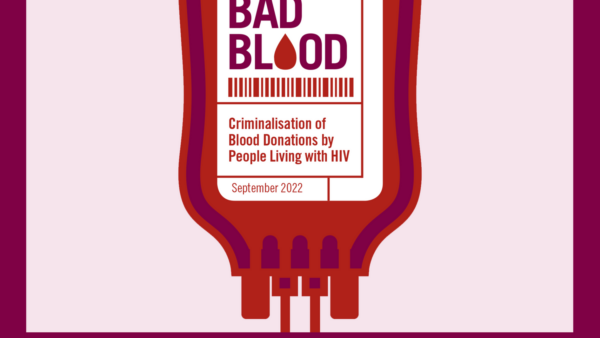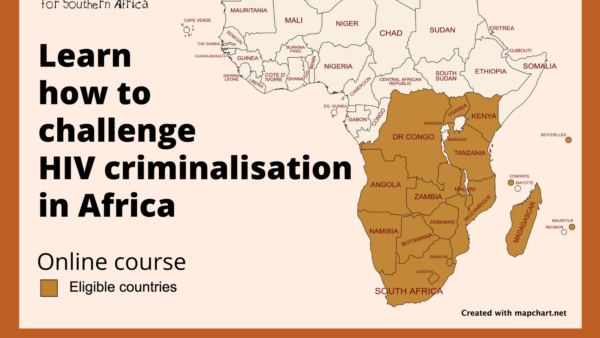Overview
Mozambique has a number of laws criminalising people living with HIV.
In 2009, Mozambique introduced Law No. 12/2009, “Establishing the rights and duties of people living with HIV and AIDS, and adopting necessary measures for its prevention, protection and treatment”, based on the highly problematic AWARE-HIV/AIDS Model Law (also known as the N’Djamena Model Law). That law, which purported to protect the rights of people living with HIV, included a provision (Article 52) criminalising ‘wilful’ HIV transmission, stating that anyone who knows they have HIV and transmits HIV to another person shall be punished with a prison term of between two and eight years. The law provided a defence where there was “no significant risk of infection”, or if the HIV-positive person “did not violate a duty of care”.
Following the introduction of Law No. 19/2014, Law No. 12/2009 was repealed, and the provision criminalising ‘wilful’ transmission by people living with HIV was not maintained. The only provision criminalising transmission relates to health care workers or athletes who ‘maliciously transmit’ HIV en masse, which carries a penalty of eight to twelve years’ imprisonment (Article 68). The 2014 law also contains a number of protections and responsibilities for those living with HIV under Article 13, including a duty to abstain from sexual intercourse without protection, and does so without reference to the risk of transmission, as well as to decline to give blood (see our report, Bad Blood, for a global analysis of the criminalisation of blood donations).
Mozambique’s Penal Code also includes two HIV-specific laws. Article 249 makes it a criminal offence for a person to transmit HIV through sex, with a penalty of eight to twelve years in prison (by comparison, the penalty for transmission of an STI through sex is two to eight years). The law is written extremely broadly and does not address issues of negligence, recklessness, intention or use of precautions against transmission. In addition, Article 222 provides for increased penalties if a sexual offence results in the transmission of HIV or another sexually transmitted disease.
Finally, Article 13 of the Law on the Protection of Protection of People, Workers and Jobseekers Living with HIV and AIDS requires that people living with HIV disclose their status to their spouse or sexual partner(s), as well as refrain from making a blood donation, or donating breast milk, organs or tissues, except in the context of scientific research.
There have been no reported cases of HIV criminalisation in Mozambique to date.
Laws
Law N° 35/2014 of December 31 (Penal Code)
Article 249 – Coitus with disease transmission
1. Who, aware of his or her infectious state, maintains coitus consented or not consented, with woman or man with whom it has or had a relation, kinship or consanguinity or with who lives in the same space, transmitting to him disease or infection of sexual transmission, is punishable by imprisonment longer than two to eight years, with a minimum penalty of three years.
2. If coitus results in the transmission of acquired immunodeficiency virus, the penalty is eight to twelve years in prison
Law No. 12/2009, Establishing the rights and duties of people living with HIV and AIDS, and adopting necessary measures for its prevention, protection and treatment
Article 52. Wilful Transmission of HIV
1. Whoever, knowing their positive serological status, passively transmitting HIV to others, will be punished with the penalty of two to eight years of major treading
2. There is no willful transmission when it is shown that the carrier of HIV has not violated a duty of care, or there is no significant risk of infection.3. The penalty of imprisonment will be applied to those who, for lack of duty of care, transmit HIV to others.
Law No. 19/2014 on Protection of People, Workers and Jobseekers Living with HIV and AIDS.
Article 13. Duties and Responsibilities of the Person Living with HIV and AIDS
The person living with HIV and AIDS has, among others, the following responsibilities:
(…)
g) make known to the spouse or sexual partner about their serological condition;
h) not donate blood and blood products, breast milk, organs or tissues for therapeutic use, except in the context of scientific research.
Law N° 35/2014 of December 31 (Penal Code)
Article 222 – Special Aggravation
1. In the offenses referred to in this section, the penalties shall be replaced by the immediately higher if:
(…)
e) the crime results in sexually transmitted disease or infection;
2. In the case of transmission of HIV and AIDS by the offender to the victim in the crimes dealt with in this section, the penalties aggravated under the preceding paragraph shall be replaced by the immediately higher.
Further resources
This review was complemented by fieldwork whose objective was to assess the practical implementation of legislation and public policies on HIV and AIDS in Mozambique, as well as the problems faced by key populations and populations vulnerable to HIV infection and AIDS (in Portuguese).
Acknowledgements
Our thanks to UNAIDS for their research assistance to confirm current relevant legislation.
HIV Justice Network's Positive Destinations
Visit the Mozambique page on Positive Destinations for information on regulations that restrict entry, stay, and residency based on HIV-positive status, as well as access to HIV treatment for non-nationals.

